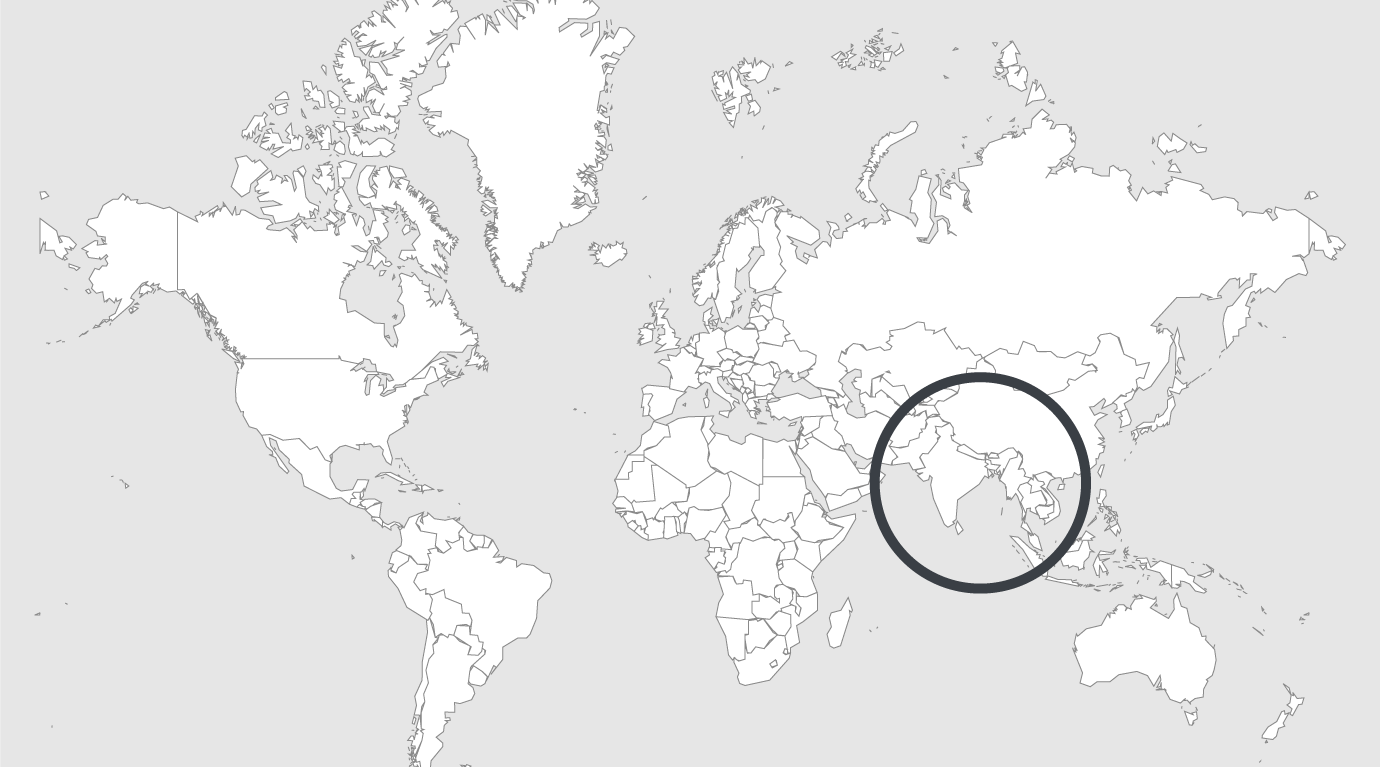
Explore
Malaysia: abuse, collusion and obstruction: Malaysia’s prison problems
Ahnbhalagan Muthu died in prison in Penang last month. His wife claims he was severely beaten shortly before his death. His is the latest in a series of tragic cases highlighting issues with Malaysia’s prisons.
Ahnbhalagan Muthu was serving a three-year sentence for burglary. He had been in jail for less than three months when he died in Penang Prison. His post-mortem recorded death by hanging. Officers said he used a blanket to commit suicide. His wife, Deviga, was convinced his body showed signs he had been beaten. Prison officers denied her allegations. Police initially tried to stop her filing a report. They then questioned why she was burying and not cremating her husband.
The case has led to calls for further investigations. Democratic Action Party (DAP) politician P Ramasamy wants the Independent Police Complaints and Misconduct Commission (IPCMC) to widen its remit and take a closer look. “There have been too many deaths in custody over the years,” he said. “Hence, the IPCMC must look into deaths in police and Prisons Department lock-ups, too.”
Muthu’s death was the latest in a string of tragic prison incidents
Any death in custody is one too many, but unfortunately, Muthu’s case is far from an isolated event. The numbers make for depressing reading. Official figures listed 257 deaths in custody between 2002 and 2016.
Prison officers and police have long escaped scrutiny
Back in 2009, police attacked A. Kugan so aggressively he died of kidney failure. It took a second post-mortem – the first was a whitewash – to establish how he died. In February 2018, Chandran Munianty ended up in hospital with severe injuries including missing toenails. The police claimed he had fallen while going to the toilet and his nails were removed to treat a skin disease.
His case was cited by Human Rights Watch whose 2018 report on Malaysia castigated its treatment of prisoners. “Police torture of suspects in custody, in some cases resulting in deaths, continues to be a serious problem, as does lack of accountability for such offences,” it asserted. Nobody was charged for harming Munianty. Only one officer – a police inspector – was charged for his actions against Balamurugan. There is a shocking and tragic pattern. Of 242 deaths between 2000 and 2014, only two were officially attributed to police. Only six out of 80 deaths in custody between 2000 and 2004 were deemed worthy of an inquest.
Prison conditions are poor and officers intolerant
Poor conditions in Malaysian prisons and detention centres mean prisoners are vulnerable to illness. Overcrowded prisons lead to the rapid spread of diseases. Many of these are treatable and would not usually lead to fatalities.
For example, in late May, M Proosothaman died from tuberculosis (TB) after he was denied proper medical treatment at Sungai Boloh Prison. The Ministry of Health and the prison have launched a joint investigation. His case is particularly worrisome because TB is contagious. He may have infected other prisoners as well as prison staff. Mariappan Manivannan was just 24 when he died in Bentong Prison in June 2018. He had been unwell for a month but received minimal medical attention. Elsewhere, several foreigners report bad treatment at the hands of officials in detention centres. They claim to have suffered or witnessed abuse. Others were discriminated against for being transgender.
Rights groups continue to urge the government to reform the system
There have been repeated calls for the government to act. A report in 2017 by the country’s national human rights panel, Suhakam, called for reform after more than 600 prisoners and detained immigrants died in two years. “There is little interest in the human rights of detainees,” said Suhakam Chairman Razali Ismail. “This attitude is reflected in government budgetary priorities and the resources made available for the running and upkeep of all places of detention.” Human rights group Lawyers For Liberty spoke out following Proosothaman’s death. “At the end of the day, there is an issue of negligence,” alleged Melissa Sasidaran, the family’s lawyer.
Mahathir pledged to better Malaysia’s human rights record
While on the campaign trail, Prime Minister Mohamed Mahathir pledged to improve ’s record on human rights. Muthu’s case shows that he still has plenty of work to do. “The BN (Barisan Nasional) government was in a state of denial… it is crucial for the current PH government to hold an independent inquiry into the said deaths and the violent treatment as a criminal matter,” urged Glorene A Das, executive director of human rights groups Tenaganita.
Her colleague, Aegile Fernandez, agrees. “We need to keep questioning until there are no more deaths in custody unless there is a valid enough reason for the death,” she told ASEAN Today. “There should be a Royal Commission of Enquiry, like the Wang Kelian Mass Graves Enquiry to know the truth of the numerous deaths in custody.” Mahathir’s successor, Anwar Ibrahim, may be a man with more motivation to do something about the problems. After all, he knows what it is like. He was a victim of police brutality himself when he was imprisoned in 1998.
Malaysian prisons have systematic and serious problems. Conditions are poor, and disease is rife. They are overcrowded, and the state lacks the resources to care for its prisoners adequately. Officers have fallen into a pattern of behaviour that costs lives.
“We need to identify the causes of death in custody and hold officials responsible,” Fernandez added. “Educate and change the mindset of all officials in the various departments as deaths will continue if we do not change (the behaviour of) people who are in charge.” Prison officers and police treat those in custody badly. For too long, they have been allowed to get away with it. Multiple cases have highlighted their misdemeanours. The abuse of prisoners and collusion afterwards must stop. Otherwise, Mahathir’s words – and Muthu’s death – will not count for anything.
Read full article
